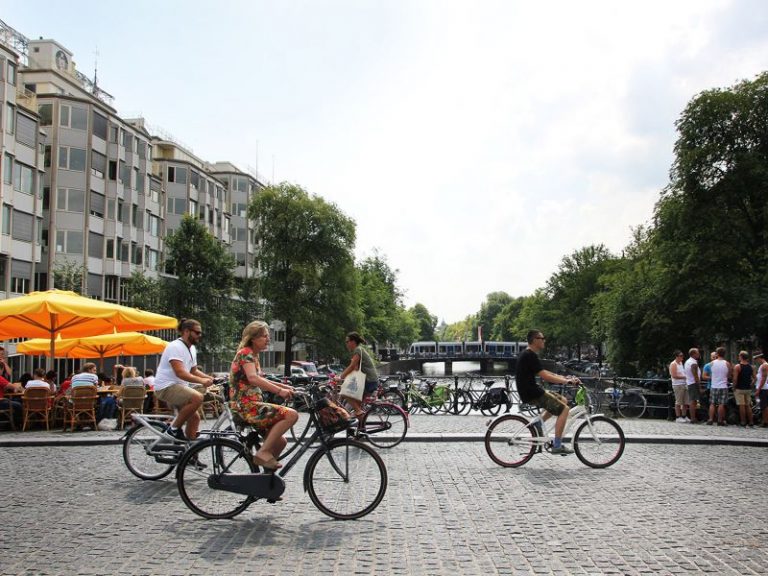Amsterdam has considerably grown in terms of population and visitors over the past years. This puts enormous pressure on the infrastructure. Data insights can be of great value to keep the city liveable in terms of mobility. The way this is tackled has major consequences for every citizen in the city. We may want to share the data that comes out of it, or we may not or only under certain conditions: we would like to determine that as residents, in a democratic, transparent and balanced process.
In the Mobility Lab Bicycle data commons, organised by CTO Amsterdam, Transport region Amsterdam and Waag, we investigate how this can be designed. We do this based on the concept of data commons. Data commons are data platforms for shared use, where the community jointly sets the rules for access and use.
Data commons are useful in situations where personal data where the data comes from various sources and on multiple scales. In this way, the people and organisations can share their data under conditions that fit the situation.
Why bicycle data?
In the case of car and public transport there is an abundance of data available; that does not yet apply to the bicycle. However, the use of apps, e-steps and sharing bicycles is vastly increasing. The municipality itself also collects data, by counting points and security cameras. Amsterdam would like to bring those data streams together. All market parties that are active in the public space have to share their data with the government. But what about the citizen’s perspective? What happens with the data flow from your route planner? As a resident, how can you influence what decisions are made or what business models are built on bicycle data?
Residents, entrepreneurs and policymakers will design a solution in the mobility lab. We explore the preconditions that various parties require to share data within data commons. We are developing a framework for the municipality: In terms of data, what does a balance between private, public and commons look like? And we make a functional design: what should data commons look like practically? We do this by means of meet-ups and three design sprints, to which involved residents will be invited.
The mobility lab bicycle data commons is part of the European project MUV, Mobility Urban Values.
This project has received funding from the European Union’s Horizon 2020 research and innovation programme under grant agreement No. 723521.
